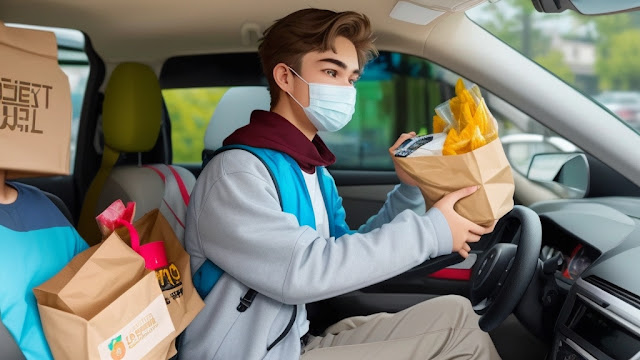Joseph Kaiser, a 26-year-old full-time student at the University of Central Florida, shares his experience of juggling multiple part-time jobs to augment his income. He works approximately 35 hours a week across three gigs, earning over $8,000 from driving for Uber Eats and DoorDash and more than $10,000 as a part-time employee at Kohl's in 2022. His Uber Eats and DoorDash earnings are after deducting the platforms' fees. Despite his parents covering the majority of his tuition, Kaiser is responsible for his other expenses, such as gas, phone bills, health and auto insurance, car maintenance, and food. He resides with his parents in Daytona, leading to a one-hour commute to campus.
Kaiser's choice to engage in multiple gigs echoes a broader trend among young Americans. Forty-eight percent of Gen Zers have more than one side hustle, according to a 2022 survey commissioned by Microsoft. Additionally, a recent TransUnion study found that 45% of Gen Z gig workers were earning $2,500 or more per month, the highest among any generation. Factors such as student debt, housing costs, and living expenses have driven many in this generation to seek additional income sources.
Kaiser, who is nearing graduation with a Bachelor's in information technology, sought out driving for Uber Eats and DoorDash to supplement his Kohl's earnings. While he acknowledges the inconsistency in his food delivery earnings, he finds success by "multi-mapping" — simultaneously working for Uber Eats and DoorDash. By going online on both platforms and accepting deliveries that pay a minimum of $7 and at least $1 per mile, he maximizes his income, especially when one platform is slower than the other.
Despite the benefits, this strategy is not without its challenges. Kaiser is mindful of the potential risks of poor service and late deliveries that could lead to deactivation. Furthermore, frequent food deliveries have taken a toll on his car, with his Nissan Sentra accumulating over 85,000 miles since its purchase in mid-2021.
Balancing work with school has been a skill Kaiser continues to refine. He attests that at times, his part-time gigs have encroached on his academic commitments. He consciously makes trade-offs between his income and academic progress, occasionally taking breaks from food delivery when academic demands are high. Prioritizing his studies when necessary has been key to achieving a better work-school equilibrium.
Following graduation, Kaiser aims to secure an entry-level IT job and reduce his hours with Uber Eats and DoorDash. Nonetheless, he appreciates the flexibility and social interactions these gigs provide. Over time, he has cultivated positive relationships with the food service staff and enjoys friendly interactions during his wait times.

